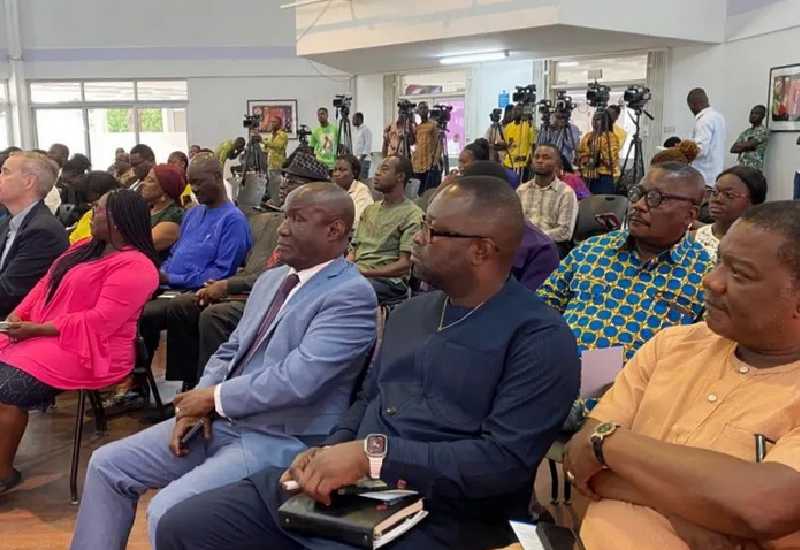Mr Albert Quarshigah, a Law Lecturer at the University of Professional Studies (UPSA), has urged the Government to repeal or amend all laws which impede media freedom.
That, he said, was necessary to ensure that journalists effectively delivered on their constitutional mandates for the betterment of the country.
He was speaking at a forum to commemorate the first anniversary of the new administration of the Ghana Journalists Association (GJA), in Accra, on Tuesday, on the theme: “Current Trends In Ghana’s Media Landscape.”
The forum, among other things, was to enable the current administration of the Association to evaluate its performance a year after assuming office.
Mr Quarshigah, who was speaking on the topic: “An Assessment of the Criminal Law on False News and Its Application Against Media Practitioners In Ghana,” noted that, over the years, Ghana had taken steps to make the environment conducive for journalists to work.
One of such steps, he said, was the repeal of the Criminal Libel Law in 2001, which had improved the practice of journalism and strengthened the country’s democracy.
Despite that, he noted that many laws existed in the country’s books, which deterred journalists from delivering on their mandates assigned by the Constitution.
For instance, Mr Quarshigah noted that “Section 208 of the Criminal Code states that a person who knowingly gives false or misleading information can face a fine of not more than one thousand penalty units or to a term of imprisonment of not more than three years or to both,” remained in the books of the country.

Mr Quarshigah raised questions about the existence of the State Secret Act, indicating that, the Act, although not primarily targeted at journalists, could still be used to prosecute journalists if the State so desired.
The Law Lecturer said the media’s role in the country’s development could not be underestimated, so any law which prevented media practitioners from effectively delivering on their constitutional mandate must not be entertained.
“Most journalists report information from government circles. Sometimes it is difficult to get information in government circles, so you let the story go anywhere and then it turns out that if you have done a check you would not have published it.
“With all these challenges, why should the journalist go to jail for instance, because he published a story and then because of certain failure to search? Sometimes, when you put the story out, it gives story makers the opportunity to actually come out to respond and to clarify,” he said.
He added that: “We have done it before, we have repealed laws in this country. If you look at Article 12 of the Constitution the responsibility that is imposed on journalists is a very serious one. Journalists are supposed to hold government accountable and responsible to the people of Ghana.”
Mr Quarshigah also urged the GJA and the National Media Commission to take steps to strengthen issues of ethics among journalists.
Mr Yaw Sarpong Boateng, Executive Secretary, of the Right To Information Commission, said the passage of the RTI law has improved the work of journalists in the country.
However, he noted that non-compliance by public institutions remained a major challenge to the implementation of the RTI law.
Madam Fatimatu Abubakar, Deputy Minister of Information, said the Ministry was implementing programmes to improve the work of Ghanaian journalists.
Key amongst them includes capacity building of journalists, campaigns on negative effects of mis/disinformation, making information accessible to all and prioritising the safety of journalists.
Ashantibiz




